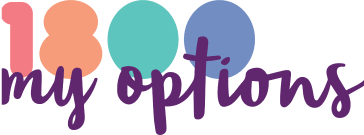Trish is one of the generous volunteers at Counterpart who provide peer support to other women diagnosed with cancer. She spoke at our recent birthday celebration, where she shared her reflections on Counterpart:
Thank-you. It is such a privilege to be invited to speak as a part of Counterpart’s 20th birthday celebrations.
I first arrived at Counterpart, then named BreaCan, in May 2014, 5 days after having a partial mastectomy (dressing and stitches in place) and 5 days before I had my first meetings with a radiotherapy oncologist and a medical oncologist. This was my second encounter with breast cancer. Both of my breast tumours were primary cancers. My first was in 1998. The challenge the second time was greater than the first.
I was angry. I was scared. I didn’t have time for this. I was working full time. I was the primary wage earner, a wife, a mother, a carer of elderly parents, a friend, a colleague, a sister, an aunt, a great-aunt. I know now that I was spending a great amount of energy being brave for others, shielding them from what was going on.
I provide this background because while all our stories are unique in their own way, I now know that what I was feeling and how I was responding was quite normal. My behaviour and experiences were ones that I share with other women that I have since come into contact with.
I came into BreaCan looking for information and advice to assist me in making decisions about my treatment. I thought I would be in and out, hopefully leaving with some information to assist me. I did that. However, I left with much more.
The first thing that struck me when I entered the room was the calm. If you can imagine someone with their mind running at 100 miles an hour with any number of scenarios being played out, then this was me. It had been an intense 10 days since diagnosis. But for the first time in all of this I met someone who was objective, who listened, who cared, who had time for me and of course was able to help me with information I sought. I met a wonderful woman who was there, in the moment, I was there, for me. A woman who had a shared experience, a woman who didn’t question or judge.
During the months, when I was going through treatment, I received several calls from peer support volunteers. Occasionally I couldn’t take the call and sometimes I didn’t feel like talking too much. This was fine. There was no pressure to talk. I was always given the space and the opportunity to respond according to how I was coping. At other times the calls were very welcome, often coming at just the right moment. These calls gave me an opportunity to speak to someone outside of the day to day environment I was living in. I found that I could be myself and talk about how I was feeling and coping. I was sharing my experience with someone who understood, someone who helped me to make sense of it all. I believe that without our shared experience these conversations would not have been anywhere near as valuable. I trusted this woman because she had been where I was now. I came in as a patient with cancer. I was losing my identity. Over time though I became more confident, empowered, I was gaining back some control. I had the confidence to ask questions and seek advice from my medical team. I came to know that decisions were mine to make, not ones to be made for me.
For me this definition of Peer Support says it all: “Peer support is distinct from other forms of social support in that the source of support is a peer, a person who is similar in fundamental ways to the recipient of the support; their relationship is one of equality. A peer is in a position to offer support by virtue of relevant experience” . At Counterpart, women are supporting women with shared life experiences. We shared the experience of being wives, partners, mothers, carers, friends, colleagues, sisters and aunts, as well as our experience with cancer.
In my contact with women, it is often these life roles that we discuss: how can we fit this cancer diagnosis in with the rest of our lives? What about the kids? What about my partner/wife/husband? In my case it was how to cope with my 90+ year old parents still living at home (who truly believed they were independent). Having another woman who understands all of this, who has lived it, is priceless. Knowing that others have had the same experience and have come through it all encourages us to keep moving forward. When the expansion of the service was first discussed, with peer support volunteers, I was not fazed. While the cancer diagnosis might not be the same, often the impact is and this is where we provide strong support.
Eventually life for me went back to its new normal, and I was not in need of the one on one contact with peer support volunteers. We agreed that I would make contact if I needed to chat. My position was respected. I was on the mailing list though, so I was still connected. This was important to me. I had a line of support when I needed it. This place where I had found strength and support was still in my world.
It was an email in 2018 containing information about Peer Support Volunteering that took me to the next stage of my involvement with Counterpart. I had been thinking about this for some time and the time seemed right to apply. So, I did.
The recruitment process is robust, one where time is taken to ensure that prospective volunteers are in the right place physically and emotionally to undertake the role and one where applicants can ask questions and check and balance to make sure that being a peer support volunteer is right for them.
There are 6 days of intense training undertaken over 6 weeks. There is a lot of information sharing and considerable professional support to guide volunteers through this training. Of course, the wonderful Counterpart staff are with you every step of the way. Prior to making any contact with others, we have several opportunities to shadow, to listen to, experienced volunteers as they provide support to women with cancer.
We also have regular in-service sessions giving us an opportunity to come together, to learn, but more importantly to discuss and share our experiences. An opportunity for peer support volunteers to support each other.
At times providing support can be difficult. Sometimes listening to others share their experience can be a trigger that takes you back to when things were challenging for you. We are well supported though, there is always a debrief after our shifts and we know we can say no to anything that causes discomfort. Counterpart is my ‘safe place’.
I have been a member of the Counterpart Advisory Group for the last 2 years. I and another volunteer represent the Peer Support Volunteers. This has provided me with another perspective and is a forum to raise the needs and concerns, the good and not so good stories, that we hear from the users of the service and share these with another wonderful group of women representing and caring for women and others with cancer.
Thank-you for listening to my reflections on the service Counterpart provides. I hope I have done it justice. It’s easily said but I have taken more from this experience than I could ever give. Counterpart is simply the best!!!





